Lemon Water and Fasting: Does Lemon Water Break a Fast?
Does lemon water break a fast? Essentially, no. Plain lemon water, with no added sugars or calories, will not likely disrupt your fasting state. While it contains minimal calories, these are usually negligible in a standard fasting routine. In this article, we’ll delve into how lemon water interacts with various fasting methods, its benefits, and any potential downsides during a fast, including its impact on autophagy.
Key Takeaways
Plain lemon water, which is nearly calorie-free, can generally be consumed during fasting without breaking the fast, but the specific fasting regime and personal goals should be considered.
While lemon water provides hydration, essential nutrients, and potential health benefits during fasting, excessive consumption could disrupt autophagy and affect insulin levels, so it is recommended to drink it in moderation.
Lemon water has potential downsides, including tooth erosion and digestive issues; hence, alternatives like cucumber water, herbal teas, and plain water can support fasting goals.
Understanding Fasting and Lemon Water
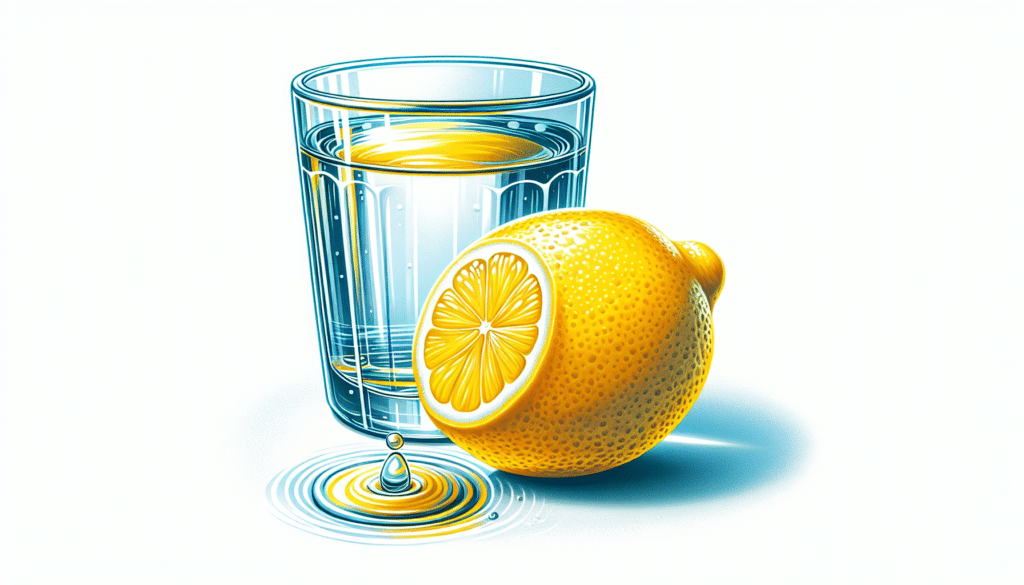
Fasting, especially intermittent fasting, means alternating between eating and refraining from consuming food and caloric drinks within a specific eating window. This can help improve metabolic health and promote weight loss. The primary aim is to reduce calorie intake and trigger beneficial metabolic processes like autophagy and ketosis. This approach has gained a reputation for its potential to improve metabolic health, weight loss, and extend lifespan.
Lemon water, created by mixing lemon juice with water, is widely enjoyed for its refreshing flavor and health benefits. It is nearly calorie-free and provides essential nutrients like vitamin C, potassium, and magnesium. Whether lemon water causes a lemon juice break during a fast depends on its content and how it is incorporated into the fasting routine. Some people prefer taking a lemon water break instead, which can still provide health benefits without disrupting their fasting routine.
Plain lemon water without added sugar or caloric ingredients is generally safe to consume during fasting. It can enhance hydration, aid in detoxification, and offer a slight boost of nutrients without significantly affecting the fasting state. However, the fast and personal fasting goals should always be considered when incorporating lemon water into your routine.
Does Lemon Water Contain Calories?
A common concern is the calorie content in lemon water. Although lemon water does contain calories, the amount is minimal. Here is the calorie content of lemon water:
A glass of lemon water has around ten calories.
One ounce of lemon juice contains approximately eight calories.
A single tablespoon of lemon juice has approximately three and a half calories.
Given these low numbers, lemon water is considered one of the low-calorie beverages with very few calories, making it acceptable during fasting periods.
However, those keen on strictly zero-calorie fasting may find the minimal calories in lemon water a concern. Although lemon water is nearly calorie-free, its digestive enzymes may stimulate digestion, potentially disrupting the fasting process and autophagy. Consequently, plain water is the safest choice to avoid all caloric intake.
Lemon Water and Intermittent Fasting Protocols
Lemon water is generally compatible with various intermittent fasting protocols. Its low calorie and sugar content means it usually doesn’t break a fast. Additionally, it offers antioxidants and anti-inflammatory benefits, which can support overall health during fasting.
However, one must consider the specifics of their fasting regime and objectives. The following subsections delve into how lemon water aligns with various intermittent fasting protocols, including the 16/8, time-restricted feeding, alternate-day fasting, and the 5:2 Diet.
The 16/8 Intermittent Fasting
The 16/8 intermittent fasting method, which involves fasting for 16 hrs and eating within an 8-hr window, is popular due to its simplicity and potential health benefits such as improved metabolic health and weight loss.
Lemon water, which is nearly calorie-free and contains digestive enzymes, is commonly consumed during fasting. Although there’s some debate about its effect on fasting and autophagy, a small amount of lemon juice is generally considered safe and can aid in hydration and curbing hunger. Staying hydrated with water, whether plain or with lemon, is crucial during fasting.
Time-Restricted Feeding
Time-restricted eating consists of consuming all meals within a designated daily window and fasting for the remaining hours. During the fasting window, lemon water can be consumed without breaking the fast due to its minimal calorie content. It provides hydration and a small amount of vitamin C, which can enhance the fasting process.
This protocol allows you to enjoy the benefits of lemon water while adhering to your fasting routine. Whether you drink it in the morning or throughout the day, lemon water can be a refreshing addition that supports your overall fasting goals.
Alternate-Day Fasting
Alternate-day fasting entails alternating between days of regular eating and days of either caloric restriction or complete fasting. When following this protocol, it is crucial to be cautious with the quantity of lemon water consumed. Although the calories are minimal, excessive consumption might unintentionally break the fast.
Some experts recommend avoiding lemon water entirely on fasting days to ensure no caloric intake. This conservative approach helps maintain the strict fasting requirements necessary for the success of alternate-day fasting.
5:2 Diet
The 5:2 Diet consists of regular eating for five days and restricting calories to approximately 500-600 on two non-consecutive days. This particular approach to intermittent fasting is famous for its perceived health benefits. On calorie-restricted days, lemon water is an apt beverage, delivering taste and hydration without significantly contributing to calorie intake.
Consuming lemon water on fasting days can help you stay hydrated and enjoy a refreshing drink that supports your fasting goals without significantly impacting your caloric intake.
Health Benefits of Drinking Lemon Water While Fasting
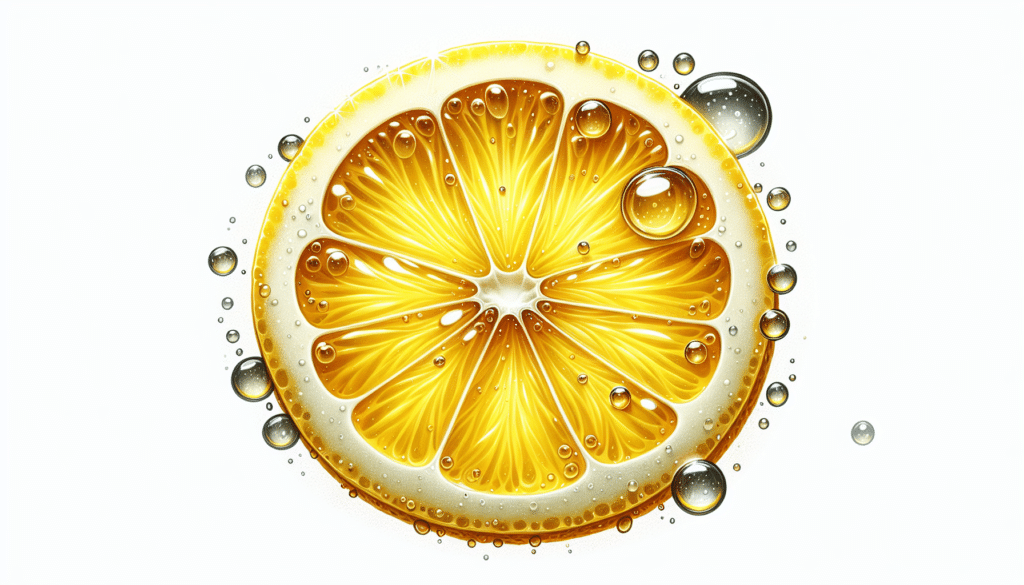
Drinking lemon water during fasting offers several health benefits. It helps maintain hydration, supports detoxification, and provides essential nutrients like vitamin C, potassium, magnesium, and electrolytes. These benefits can enhance your overall fasting experience and contribute to better health.
The subsequent subsections delve into the specific health benefits of lemon water, such as maintaining hydration and electrolyte balance, providing a vitamin C boost, and enhancing digestion.
Hydration and Electrolyte Balance
Hydration is critical during fasting due to possible electrolyte shifts in the body. Drinking lemon water can help maintain fluid levels and prevent dehydration. It is more appealing than plain water, encouraging higher fluid intake and better hydration.
Lemon water also helps replenish essential electrolytes like potassium, supporting your body’s bodies during fasting. This makes it valuable to your fasting routine, ensuring you stay hydrated and balanced.
Vitamin C Boost
Vitamin C in lemon water supports immune defense and energy levels during fasting. This nutrient is crucial for maintaining a robust immune system, especially when your body is under the stress of fasting.
Drinking lemon water made with fresh lemons can provide a small but beneficial amount of vitamin C, helping you stay healthy and energized during fasting.
Improved Digestion
Lemon water supports digestion by encouraging the production of digestive enzymes. It also helps stimulate bile production, cleansing the gastrointestinal tract during fasting periods.
Lemon water can enhance metabolic function and support fasting goals by balancing pH levels and promoting better digestion.
Potential Downsides of Lemon Water During Fasting
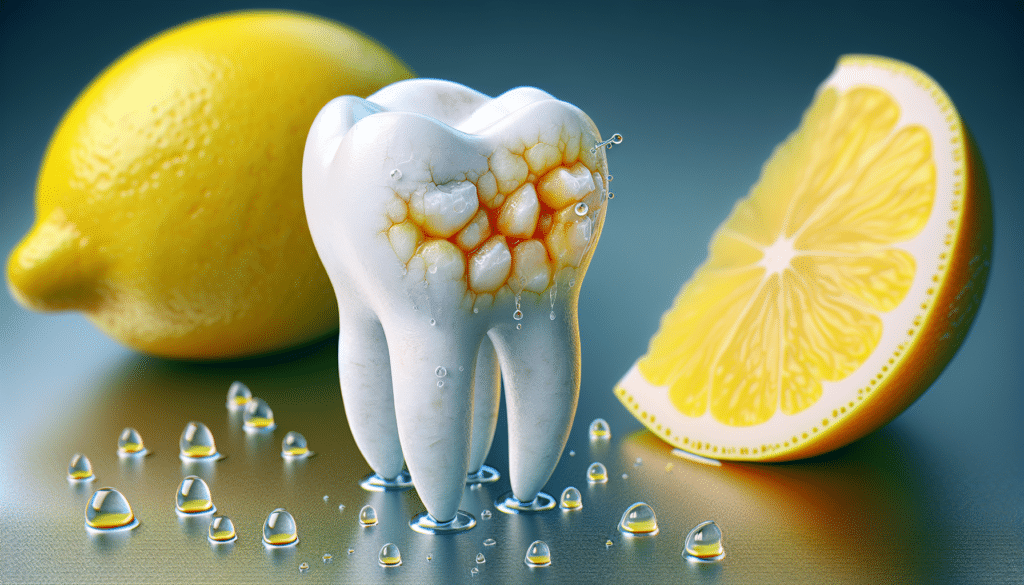
While lemon water offers many benefits, there are potential downsides to consider. These include tooth erosion, digestive issues such as acid reflux, and disrupted autophagy. Moderation is vital to avoiding these undesirable effects and ensuring your fasting goals are not compromised.
The upcoming subsections delve deeper into these potential disadvantages, offering insights into their mitigation.
Tooth Erosion
The citric acid in lemon water can gradually erode tooth enamel, which may lead to dental health issues over time. This erosion can expose the underlying dentine, making teeth appear darker and more cold-sensitive.
To reduce the risk, it is recommended to drink lemon water using a straw and rinse your mouth with plain water afterward. These simple practices can help protect your teeth while enjoying the benefits of lemon water.
Digestive Issues
Lemon water’s waters may trigger heartburn or acid reflux in some individuals. Drinking it on an empty stomach can worsen these issues, leading to discomfort like nausea and bloating.
Those with sensitive stomachs should consume lemon water in moderation and consider talking with a healthcare professional if digestive issues arise.
Disrupted Autophagy
Excessive consumption of lemon water might interfere with autophagy, a crucial process during fasting that helps with cellular repair and regeneration. Although lemon water contains minimal carbohydrates, large quantities could disrupt this process.
Moderate consumption is unlikely to significantly impact autophagy, but it’s essential to be mindful of your intake to maximize fasting benefits.
Alternatives to Lemon Water for Fasting
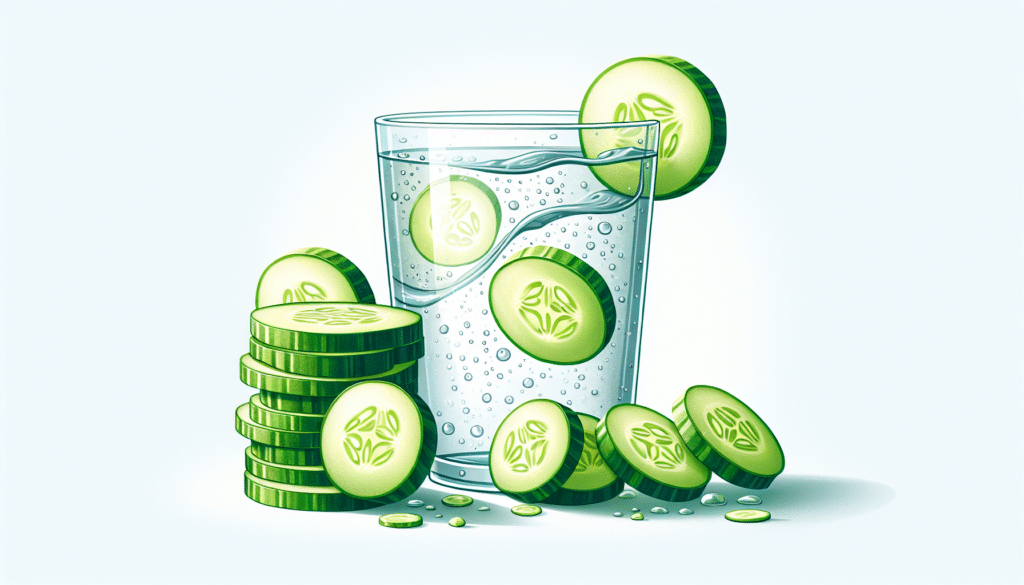
Several alternatives are available for those who prefer not to drink lemon water. These include cucumber water, herbal teas, ginger tea, and plain water. Each option offers unique benefits while supporting fasting goals.
The subsequent subsections delve into these substitutes, such as bone broth, shedding light on their benefits and integration into a fasting regime.
Cucumber Water
Cucumber water is an excellent alternative. It contains 95% water and offers hydrating and detoxifying properties. It is low in calories and can be consumed without breaking a fast, making it a refreshing option during fasting periods.
Additionally, cucumber water can help detoxify the body, providing additional health benefits while fasting. Its mild flavor and hydrating properties make it an excellent choice for those looking to diversify their fasting beverages.
Herbal Teas

Herbal teas are another suitable option, offering various health benefits without calories. Ginger, peppermint, and ginseng teas are particularly beneficial for their digestive and relaxing properties.
Rooibos tea, rich in antioxidants, and hibiscus tea, with its fruity taste, can also be enjoyed during fasting. These teas provide a flavorful and beneficial alternative to lemon water.
Plain Water
Plain water remains optimal for maintaining fasting protocols while keeping the body hydrated. It ensures you reap the full benefits of your fasting routine without introducing any calories or elements that could break a fast.
By staying well-hydrated with plain water, you can effectively support your body’s body and achieve your fasting goals.
Expert Opinions on Lemon Water and Fasting
Consulting a nutrition expert is vital for personalized advice on incorporating lemon water into your fasting routine. While experts agree that a dash of fresh lemon juice does not drastically impact insulin levels, seeking professional advice is always recommended.
Some healthcare professionals recommend avoiding additional ingredients, including lemon, during fasting to maximize benefits. Professional advice can help tailor your fasting plan to your needs and goals.
Practical Tips for Incorporating Lemon Water Into Your Fasting Routine
Starting the day with lemon water can help kickstart the digestive system and prepare the body for the fasting period. Drinking it before breakfast ensures maximum absorption. To minimize risks, start with one glass per day and gradually increase to one to two glasses daily. Using a straw and rinsing your mouth out with plain water afterward can help preserve tooth enamel. These tips ensure you enjoy the benefits of lemon water without compromising your fasting goals.
Summary
Including lemon water in your fasting regimen can provide several health benefits, including improved hydration, a vitamin C boost, and better digestion. However, it’s essential to be mindful of potential downsides like tooth erosion, digestive issues, and disrupted autophagy.
Consulting with healthcare professionals and following practical tips can help you safely enjoy lemon water while fasting. Ultimately, including lemon water in your fasting routine should align with your health goals.
If you liked this article, read my other post on How To Intermittent Fast Safely.
Engage with Me!
Ask Questions: Please comment below if you have questions about drinking lemon water during intermittent fasting.
Frequently Asked Questions
Does lemon water break a fast?
Lemon water generally doesn’t fast because of its low-calorie content, but it’s best to avoid it if strictly adhering to a zero-calorie fast.
What are the health benefits of drinking lemon water while fasting?
Drinking lemon water during fasting can provide hydration, a vitamin C boost, improved digestion, and detoxification, supporting overall health and well-being.
Are there any downsides to drinking lemon water while fasting?
If consumed excessively, drinking lemon water while fasting can have potential downsides, such as tooth erosion, digestive issues, and disrupted autophagy. Be mindful of the quantity you consume.
What are some alternatives to lemon water for fasting?
You can try cucumber water, herbal teas, or plain water as alternatives to lemon water during fasting. Experiment with these options to find one that suits your taste and preferences.

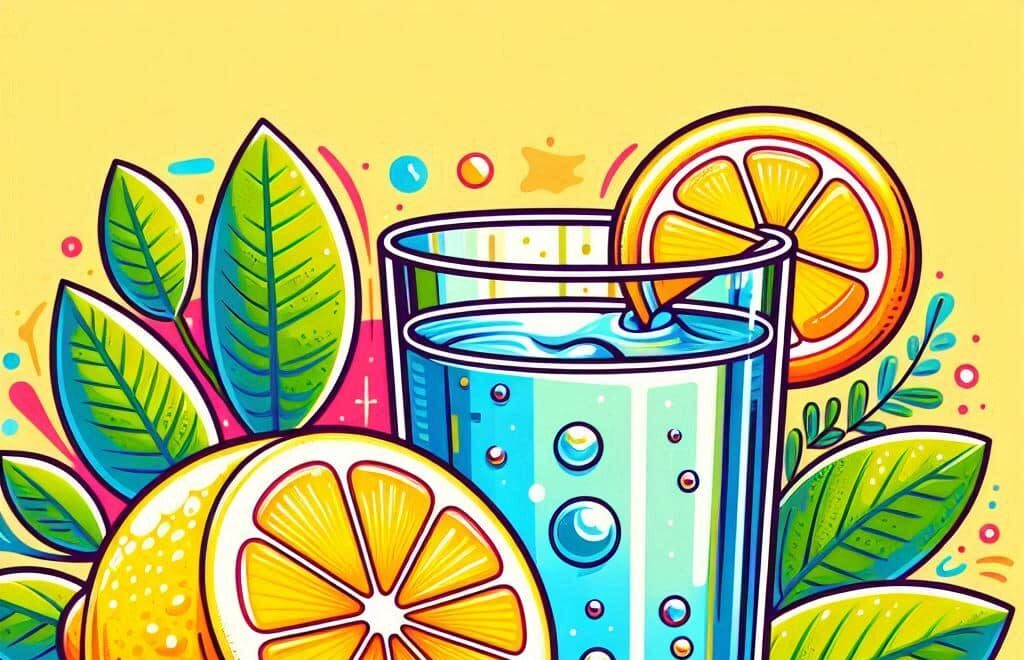






You did a great job explaining whether lemon water breaks a fast. I found it super interesting how you discussed the impact of lemon water on insulin response and its benefits for hydration and digestion. Your clarity on how small amounts of lemon juice are unlikely to break a fast was really helpful. I’m curious, do you have any favorite recipes or tips for making the best lemon water? And what are your thoughts on other flavored waters while fasting? Thanks.
Hello, Bob,
Thank you so much for your feedback! I’m glad you found the explanation about lemon water and fasting helpful.
When it comes to making the best lemon water, here are a few of my favorite tips and recipes:
Simple Lemon Water:
Ingredients:
One glass of water (room temperature or warm)
Juice of half a lemon
Instructions:
Squeeze the lemon juice into the water and stir well.
Lemon and Mint Infused Water:
Ingredients:One glass of waterJuice of half a lemonA few fresh mint leavesInstructions:
Squeeze the lemon juice into the water.Add the mint leaves and let it sit for a few minutes before drinking.
Lemon and Ginger Water:
Ingredients:
One glass of warm water.
Juice of half a lemon A few thin slices of fresh ginger.
Instructions:
Squeeze the lemon juice into the warm water.
Add the ginger slices and let it steep for a few minutes.
As for other flavored waters while fasting, here are my thoughts:
Cucumber Water:
Benefits: Hydrating and refreshing, cucumber water can add a mild flavor without breaking fast.
Preparation: Add a few slices of cucumber to a glass of water and let it infuse for a few minutes.
Apple Cider Vinegar (ACV) Water:
Benefits: ACV is believed to have various health benefits, including aiding digestion and maintaining blood sugar levels.
Preparation: Mix 1-2 teaspoons of ACV in a glass of water. Ensure it’s well diluted to avoid potential tooth enamel damage.
Herbal Teas:
Benefits: Many herbal teas are naturally calorie-free and can be enjoyed during fasting.
Preparation: Brew herbal tea like peppermint, chamomile, or rooibos without adding sweeteners.
When it comes to flavored waters, the key is to ensure that any additions are minimal and low in calories to avoid breaking your fast. I hope these recipes and tips help you enjoy delicious, refreshing drinks while fasting!
Feel free to reach out if you have any questions or need further information.
Best,
Michael